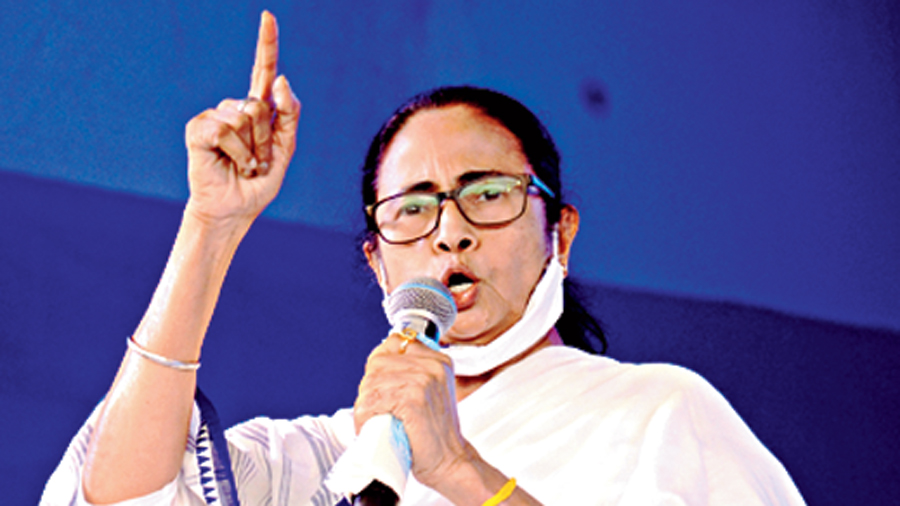‘If she decides to pursue her national ambitions, she will need an entirely new political vocabulary’.
West Bengal Chief Minister Mamata Banerjee will be the new chairperson of the parliamentary party of the Trinamool Congress. Her four-day visit to New Delhi from 26 July is expected to lay the groundwork for a greater national focus for the regional leader.
She will visit the central hall of Parliament. She will also meet President Ramnath Kovind and Prime Minister Narendra Modi. Mamata Banerjee will also hold talks with anti-BJP political parties. The decision to make her the chairperson of the parliamentary party is “significant”. The TMC has claimed that there will be a government led by Mamata Banerjee at the Centre in 2024. The TMC has said that its mission against the BJP will start from the Uttar Pradesh election which is due next year.
From Sharad Pawar to Sonia Gandhi, Mamata Banerjee will hold meetings with multiple leaders in Delhi. She will try to understand what they think about Opposition unity. She thinks that those who are strong in the states should fight against the BJP. Mamata Banerjee wants to move forward with this formula. But will the Congress follow this formula? In many states, regional parties fight with Congress. What will happen in those states?
If Mamta Banerjee decides to focus only on her state—and there are precedents of CMs who have done so despite electoral success; her neighbour Naveen Patnaik is an example—she will have to focus on sorting out a few things. In West Bengal, in the absence of Mamata Banerjee, who will take charge? Abhishek Banerjee will not be a wise choice. The West Bengal CM has to make a set of choices. And those choices will define her political future as well as the future of state and national politics. If Mamata Banerjee does decide to pursue her national ambitions, she will need an entirely new political vocabulary, for the Bengal model won’t work nationally. She will also need to figure out an arrangement with both the Congress and other regional parties. A senior TMC leader said, “During 2014 and 2019, a united front didn’t work out as the initiative was taken a few months ahead of the polls. That didn’t evoke a sense of acceptance among the voters.” That is why, this time, Mamata Banerjee wants opposition unity earlier. That is what she said at her 21 July rally. Although the TMC leadership is hopeful of creating a strong anti-BJP front, with Banerjee at the helm, it will be a difficult task for her camp to convince all Opposition parties to put aside their political differences and work for the common cause.
In the meantime, the Mamata Banerjee administration has taken a decission. Bengal Chief Secretary H.K. Dwivedi, in a message, has directed the secretaries to send him replies, which then would be forward to the CM for final approval. It will be the first time that a chief minister will be going through the replies of a CS or other secretaries meant to be submitted to Parliament and this can be a political move.

